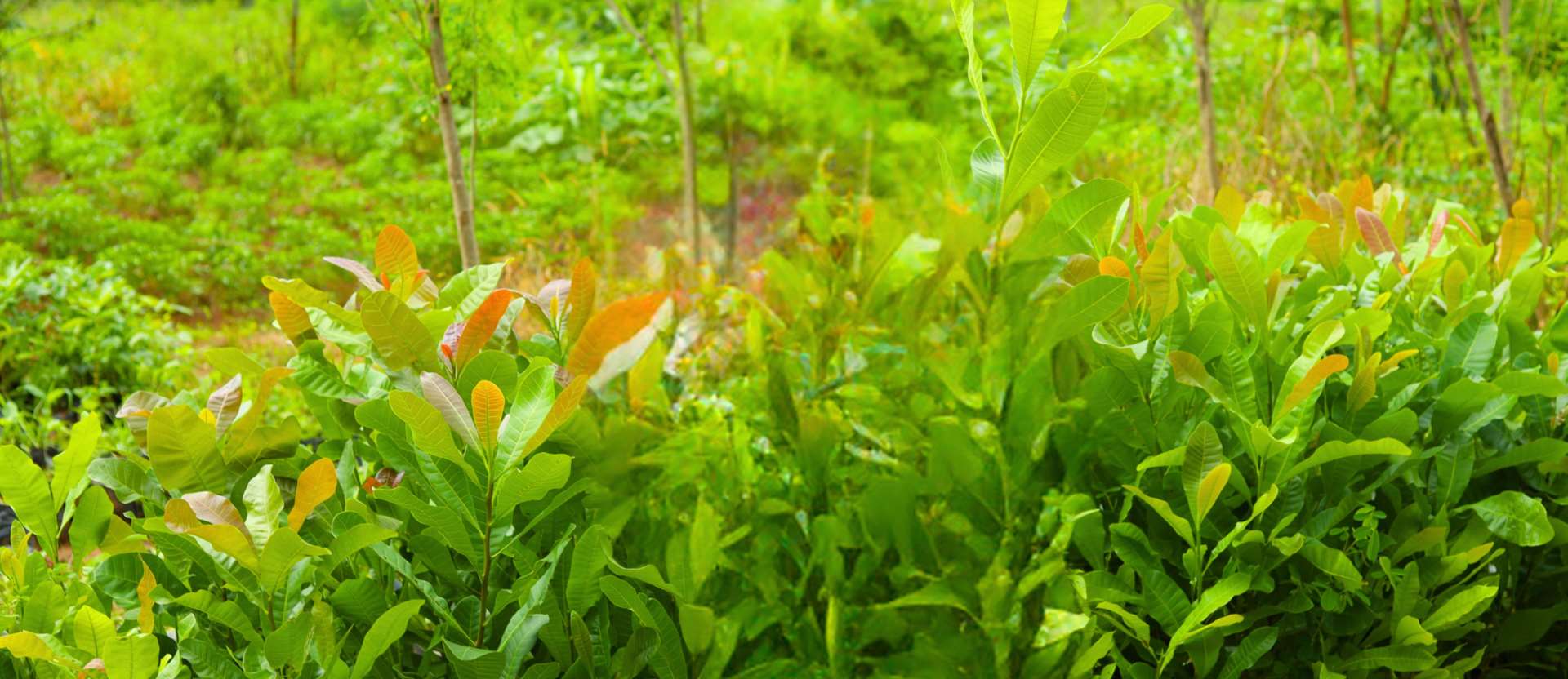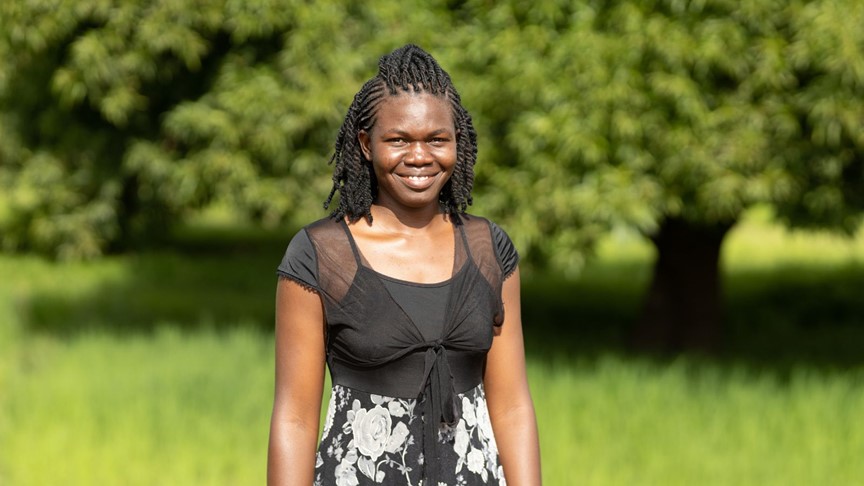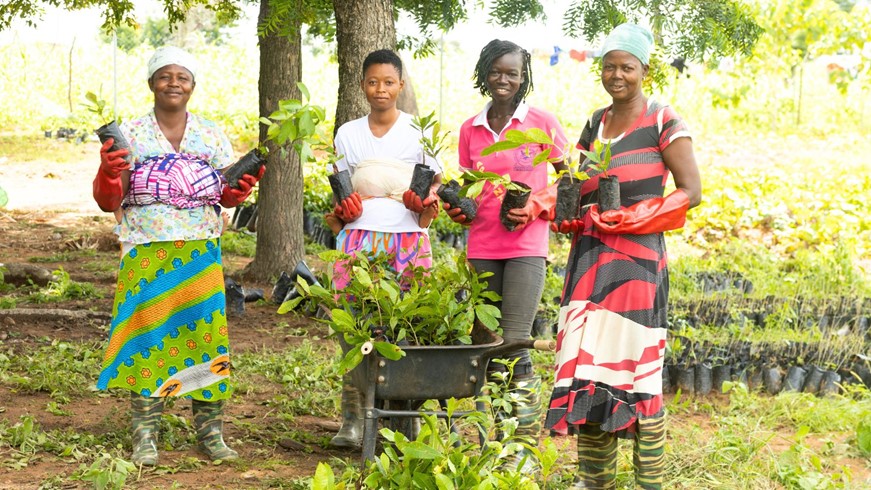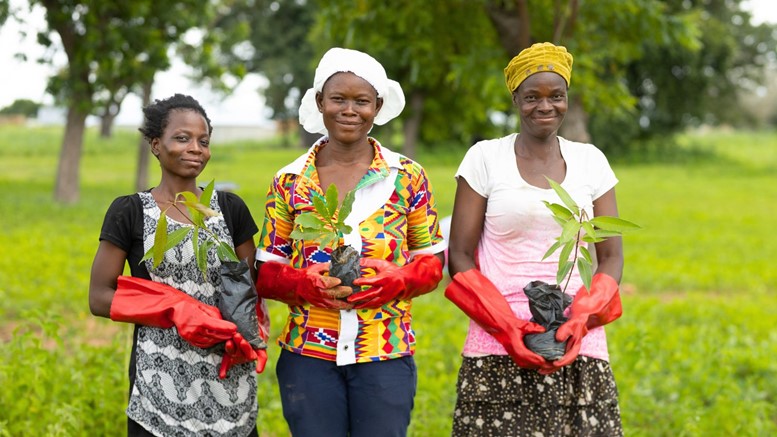
When She Grows, We Grow
Tackling gender inequality in Africa's drylands 05th April 2024The climate crisis is here. Across African drylands, droughts, flash flooding, wildfire and loss of soil fertility are becoming all too common. And in rural communities, it’s women who are more likely to depend on trees and land for their survival. That’s why in the face of this devastating change, women are impacted the most.
But we know that women are also powerful agents of change. When they come together to learn new skills and support one another, they hold the key to delivering lasting transformation for their communities and the planet.
That’s why this spring, we’re highlighting the vital need to put women’s empowerment at the heart of attempts to fight against the climate crisis.
Because when women thrive, trees thrive.
Below is a closer look at why women are impacted the most by climate change, and what we can do about it:
When women come together

Meet Ruth, a 26-year-old farmer from northern Ghana. Because Ruth's grandfather worked in the Forestry Commission, she learned from an early age about the power of trees. Now, she has her own ambitions to become a pharmacist in her local community. But the effects of the climate crisis are putting these dreams at risk, as erratic weather conditions take their toll on her income.
“My older relatives say things have changed. They say the rains come late, and then the season is short. They said when they were younger, [farming] yields were better then.”
But since joining a women’s group with Tree Aid, Ruth has witnessed the power of leaning on women in her community. Through the VSLA (village savings and loan scheme), she’s invested in her farming equipment, and has seen her income grow.
“I used a loan to pay someone to come with a combine harvester and plough our land.”
But for Ruth, the value of the women’s group means more than her earnings:
“The main benefits are unity, we can share ideas. People outside the community like me can learn from the women. I can socialize with these women too.”

Women's right to land
Trees are a symbol of hope. In the fight against a worsening climate crisis, they are a vital natural solution. But trees offer much more than that. For the communities who rely on them for survival, a tree can represent shelter, food and enough income to meet their basic needs.
But in many areas across the Sahel, gender inequality is embodied in laws and traditions that prevent women’s access to land. This barrier has a huge impact on their ability to grow or sell enough food to survive.
That’s why we work with governments, authorities, and communities to advocate for women’s rights to manage land. Through projects such as our Forest Governance initiatives in Burkina Faso, we work holistically with women and communities to provide key skills that help them to tackle poverty and earn a living through selling and harvesting tree products.
The key to change

Rural women represent a vital pool of knowledge and talent when it comes to looking after and caring for trees. That’s why advocating for women’s empowerment is key to restoring land and addressing the effects of the ecological disaster. Putting women in the driving seat of locally-led projects ensures that nature is protected by the people who depend on it.
Like many rural women in the Sahel, Ruth must carry the “triple burden” of responsibilities – as mothers, community members and land workers. But it's these same responsibilities, combined with the ancient knowledge passed down to her, which makes women like her the cornerstones of regreening efforts.
For her, the project has been pivotal, and a reminder that the work is not done:
"I would thank them [the supporters] for this initiative and for trying to empower women. Their support allows us to do things for ourselves so we don’t have to rely on men."
By standing together with more women like Ruth, we can ensure that equality is at the forefront of a greener future.
